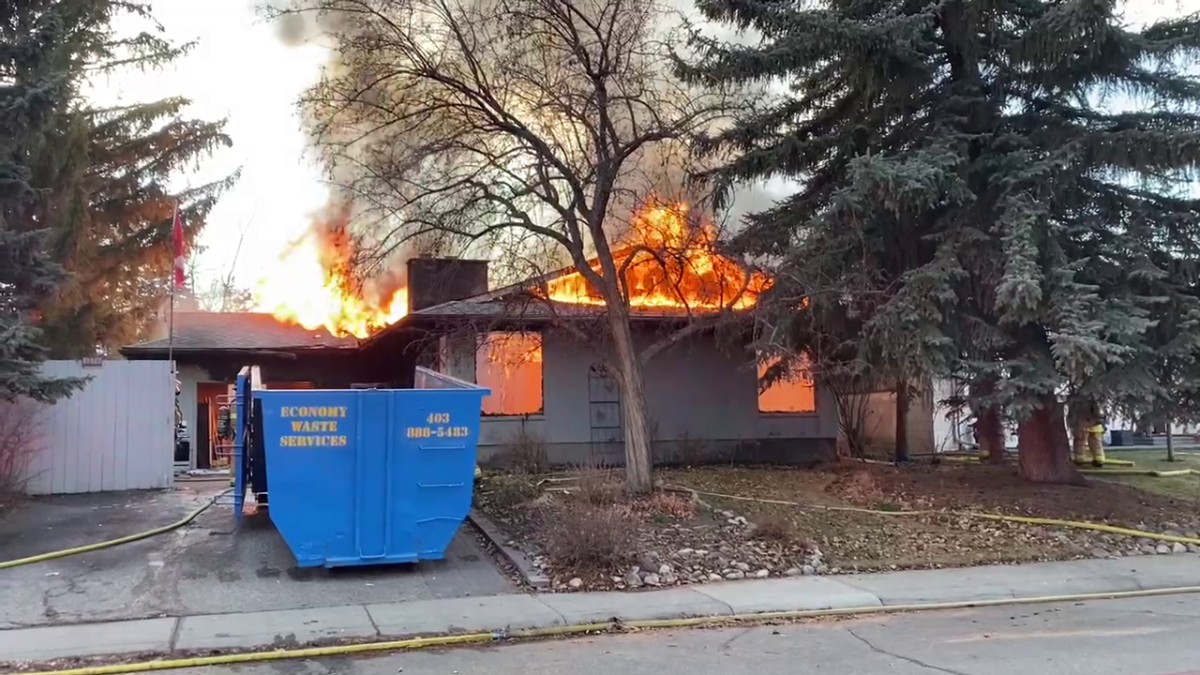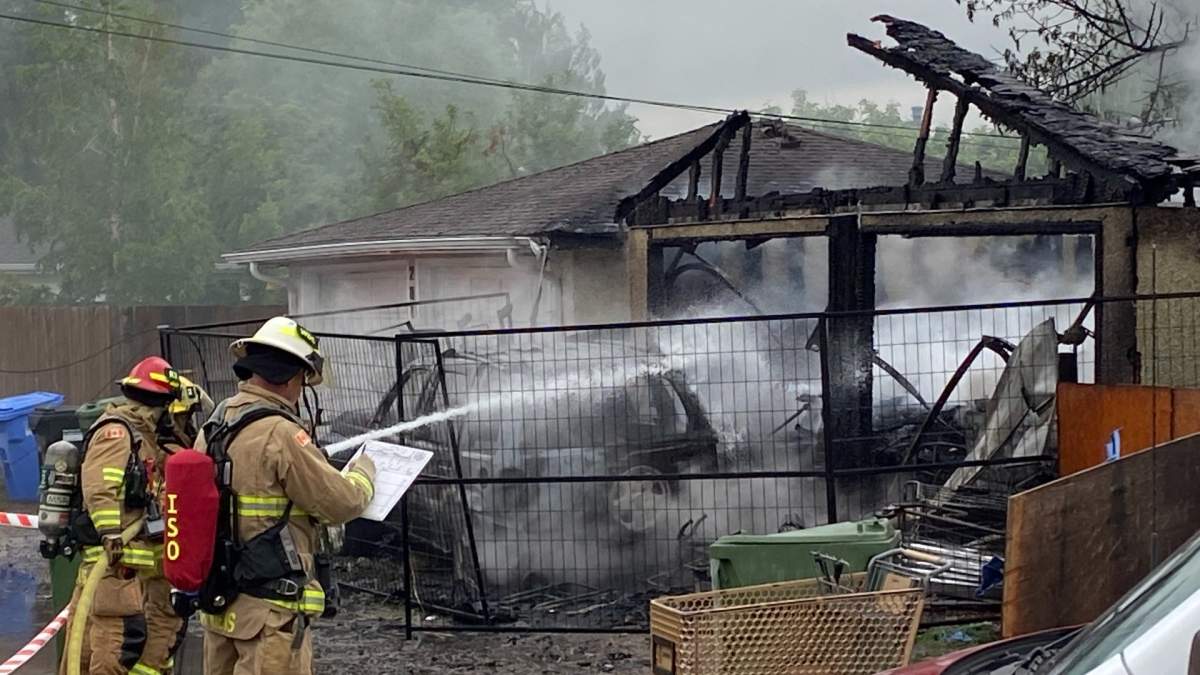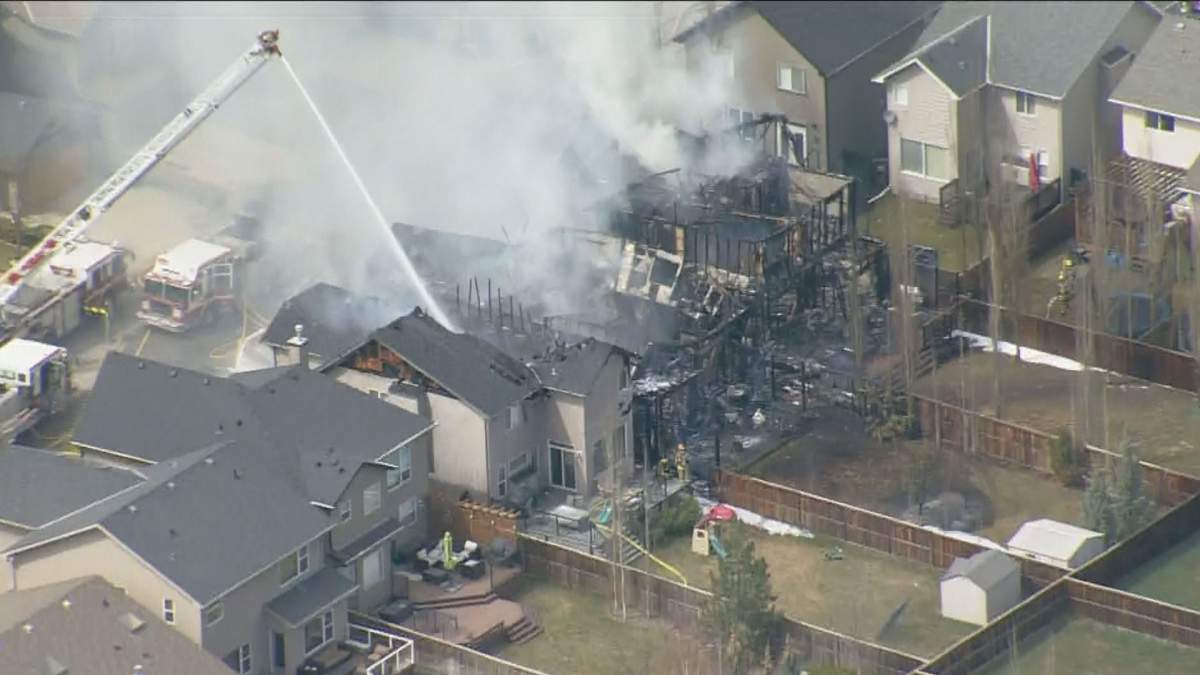The Calgary Fire Department is responding to more calls than ever, compounded by a rapidly growing city and a higher need for medical response due to the ongoing opioid crisis.

In a year-end interview with Global News, Chief Steve Dongworth said the department will have responded to around 94,000 calls by year’s end; a jump of more than 14,000 over last year.
An “explosive” growth in call volume, according to Dongworth.
“Between 2018 and 2020, we were static around 60,000 per year but we were always seeing a gradual uptick in call volume,” explained Dongworth. “In 2021, we saw 70,000 calls roughly, and in 2022 we saw 80,000 calls roughly… This year we’re at 94,000 calls.
“Over three years, that’s a 34,000 call increase. That’s over 50 per cent.”
Dongworth said the increase can be attributed to an approximately nine per cent rise in fire calls, and a 22 per cent jump in medical calls.
Car crashes only represent nine per cent of the increase in medical calls, with more than half of the medicals being overdoses.
“There’s more people coming to Calgary, more population generally means more calls,” Dongworth said. “But also what we’ve seen is the unfortunate results of our unhoused population, often associated with addictions and mental health.”
According to Dongworth, the medical response unit is the busiest in the department, expected to field around close to 7,000 calls this year.
The medical unit was brought back to the downtown core after an increase in funding when council approved the four-year budget in 2022.
A second medical unit is expected to be deployed next year after another $3.4 million funding boost from city council after budget adjustments in November.
“It’s an SUV with two firefighters just going to medical calls,” Dongworth said. “But if it doesn’t go, an engine or a ladder or another kind of heavy apparatus has to go.”
Dongworth said response times to other emergencies would’ve seen a “significant decline” if it wasn’t for the medical unit taking on those calls.
Response times remained similar to last year, according to Dongworth, with the time to form an “effective firefighting force” increasing by an average of 48 seconds this year.

Get daily National news
That response force consists of two fire engines, one aerial truck and a minimum of 12 firefighters for a serious fire.
Dongworth said it takes the fire department around 14 minutes to respond with those resources, with a goal of culminating such a response within 11 minutes 90 per cent of the time.
“Beyond the risk to Calgarians that presents, given that fires can double in size every 30 to 60 seconds, it also presents a risk to our personnel as well,” Dongworth said.
The fire chief said he anticipates funding increases for the department over the next three years will help improve response times, which will include bumping staffing up to four firefighters on each of the department’s ladder trucks.
Ward 2 Coun. Jennifer Wyness, who crafted the original motion to determine resource challenges within the fire department, said there has been progress since the initial budget increase.
The amount of overtime getting paid out is one factor Wyness said she will be keeping her eye on as that funding makes it way to the department.
“When we’re constantly pushing our employees to burnout, we’re not helping anyone, we’re not helping our community,” Wyness told Global News. “I find understaffing is not the best way to save money. It’s better to staff for department needs.”
Despite most of the extra funding budgeted for 2025 and 2026, the fire department is working to add resources sooner.
According to Dongworth, the department’s target is to recruit and train 132 new firefighters across three classes in 2024.
“We probably couldn’t hire any faster right now or train any faster than what we’re doing right now without having to invest a whole lot more,” Dongworth said. “I think we’re on a good path right now to better sustainability.”
Looking ahead to 2024, the department will test an electric fire engine after being approached by an American manufacturer to test its ability in colder climates.
A pilot has also been greenlit by the province to allow blue flashing lights on stationary fire trucks responding to roadside accidents.
Dongworth said there have been several “near misses” involving fire personnel responding to collisions this year.
A new fire station in Cornerstone will also begin construction in 2024.





Comments
Want to discuss? Please read our Commenting Policy first.